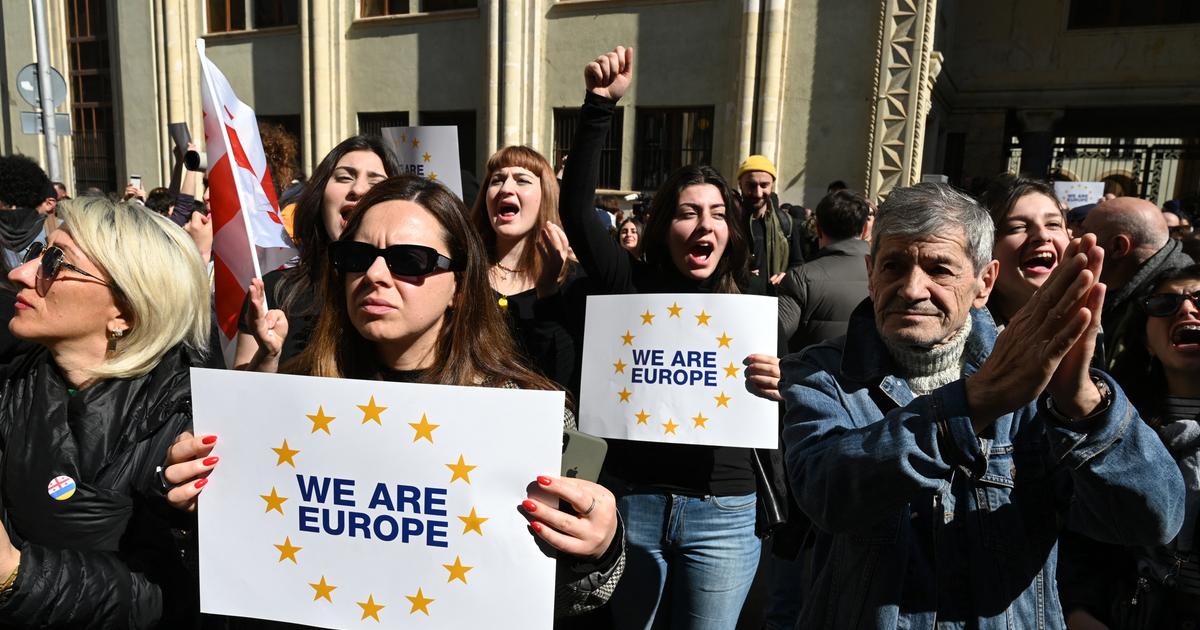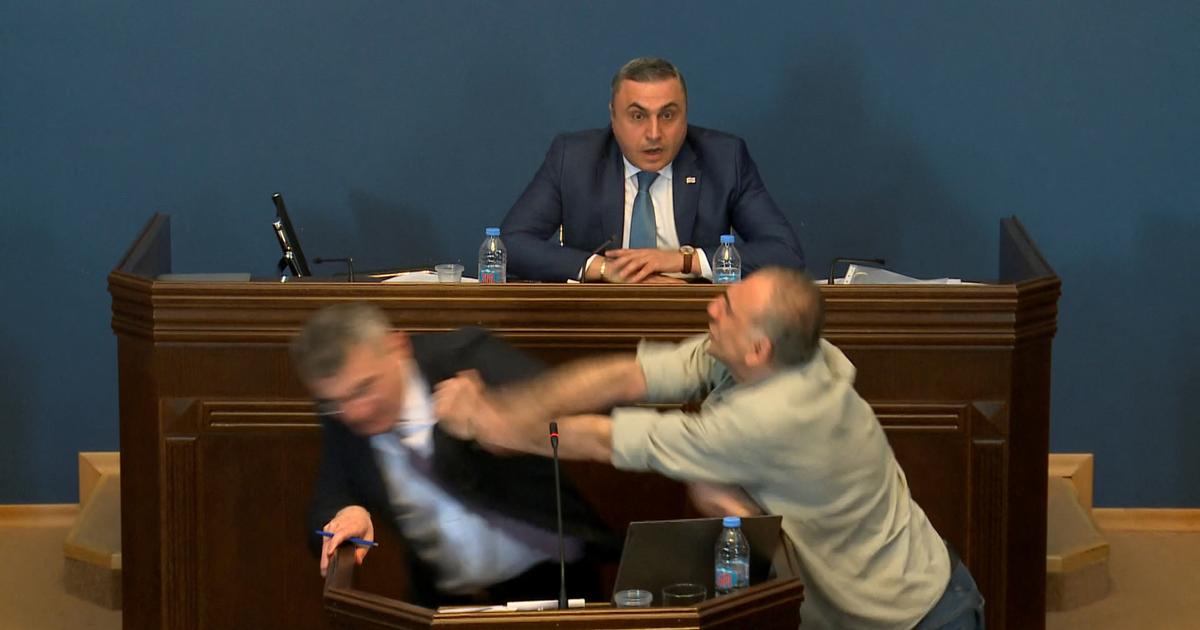Former Georgian President Mikheil Saakashvili is currently in detention - his condition is poor.
A Putin critic asks the EU for help.
TBILISI - Former Georgian President Mikheil Saakashvili's health is reportedly getting worse by the day.
Bill Browder, a businessman worth billions and a critic of the Kremlin, has now turned to the EU and asked for help: he demanded that the international community should sanction those responsible for the condition of the imprisoned politician.
Mikheil Saakashvili was sentenced in absentia to six years in prison by a Georgian court in 2018.
He was accused of corruption and incitement to cause bodily harm.
Saakashvili, who was President of Georgia from 2004 to 2013, pushed through pro-Western reforms during his tenure.
Images of Saakashvili recently surfaced on social media, showing him emaciated and frail.
The 55-year-old had previously gone on hunger strike several times, insisting he had been poisoned.
Georgian authorities claim he is misrepresenting his condition in order to secure an early release.
Poland offered to send doctors to Tbilisi to examine Saakashvili, but Georgia has so far not complied with this request.
State of health of Georgian ex-president: "If nothing is done, he will die"
In an interview with
Politico
Browder said it was time the EU extended the reach of its human rights sanctions to Georgia.
As the US magazine reported, medical reports were available late last year showing traces of "mercury and arsenic" in Saakashvili's hair and nails and lacerations "all over his body."
"We need to act faster in this case because if nothing is done, he will die," said Browder, who has led a global campaign for asset freezes and sanctions against human rights abusers.
The result was the Magnitsky Act, passed in the United States in 2012.
Browder, with his fund Hermitage Capital Management, was once the largest foreign investor in Russia, but came into conflict with Putin's regime.
“The Magnitsky sanctions are not Russian sanctions.
They are global...they apply worldwide.
And if someone turns out to be a human rights abuser, if someone is committing gross human rights violations - which I think is obvious in their case - then the sanctions should come into play," Browder said.
He is trying to gather information about those who he believes are poisoning, torturing and depriving Saakashvili of medical treatment.
Case of Saakashvili: EU should apply Magnitsky sanctions more consistently
The EU launched its own Magnitsky-style targeted sanctions regime in 2020 to punish human rights abusers.
However, Browder noted that the EU lags behind in imposing sanctions: “The EU has the fewest number of people sanctioned under the Magnitsky Act, far behind other major countries.
That's a shame.
The EU is considered the most humane and moral of all groups of countries, but it does not want to respect human rights and does not use the Magnitsky law.
I think it's a complete failure on your part not to do that, not to use this tool.”
Georgia's ruling party, the Georgian Dream, is currently facing sharp criticism.
The case of the ex-president, who is a personal enemy of Russian President Vladimir Putin, is also seen as an indication of whether the government is willing to cooperate with the EU and the US.
Critics of the Georgian Dream accuse the party of deliberately sabotaging the country's EU aspirations to avoid conflict with Moscow.
Mass protests in Georgia show strife between the EU and Russia
The uproar surrounding the former president is therefore embedded in a conflict that escalated in Georgia at the beginning of March.
Demonstrators took to the streets across the country to protest against a proposed government law that would have classified certain media and organizations as "foreign agents" and severely curtailed the work of independent media and organizations in Georgia.
The government withdrew the bill, which was also criticized by the EU and international organizations, but protests continued.
Experts say the protests highlighted the country's rift between the EU and Russia.
Georgian Justice Minister Rati Bregadze claims that Saakashvili's "radical supporters" are deliberately trying to worsen his health in order to pave the way for his release.
Georgian Prime Minister Irakli Garibashvili said the European Parliament resolution urging the Georgian government to release Saakashvili for treatment was proof that "Saakashvili is their agent" and that "they are doing everything to save their agent." and get him out of jail".
And further: “The European Parliament should rather take care of itself.
There are 100 MPs involved in the corruption scandal, why are they telling us what to do?”
EU accession: Georgia was not given candidate status
The EU is Georgia's largest trading partner and provides Georgia with over 100 million euros in technical and financial assistance every year.
While Moldova and Ukraine were given the green light for candidate status, the EU refused Georgia the title of candidate country at a summit last June.
The reason: Tbilisi must first carry out several reforms - including strengthening the independence of the judiciary.








/cloudfront-eu-central-1.images.arcpublishing.com/prisa/RYPA5FRAZ3W4EBDJLA3A5T2ZBI.jpg)

/cloudfront-eu-central-1.images.arcpublishing.com/prisa/KMEYMJKESBAZBE4MRBAM4TGHIQ.jpg)



